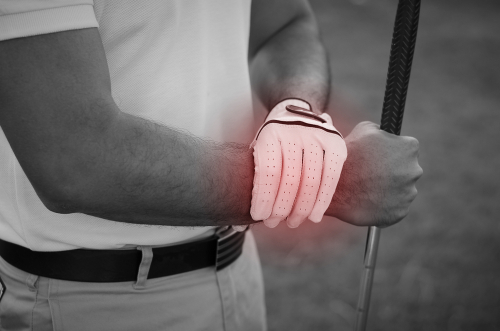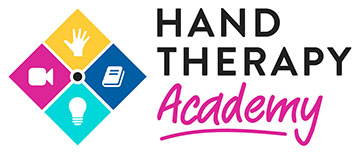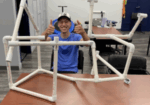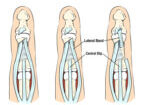Which is better for DeQuervain’s: Splinting or Injection?
Filed under Reviews
Rapid Review
Cavaleri, R., Schabrun, S. M., Te, M., & Chipchase, L. S. (2016). Hand therapy versus corticosteroid injections in de Quervain’s disease treatment: A systematic review and meta-analysis. Journal of hand therapy: official journal of the American Society of Hand Therapists, 29(1), 3–11. https://doi.org/10.1016/j.jht.2015.10.004
The Skinny: DeQuervain’s Tenosynovitis is a stenosing tenosynovial inflammation affecting the abductor pollicis longus and the extensor pollicis brevis in the 1st dorsal compartment. The treatment varies from conservative the surgical, and this review focuses on conservative treatment.

The authors performed a systematic review to compare the effectiveness of steroid injections with 1.) hand therapy splinting alone, 2.) hand therapy splinting with steroid injections, and 3.) steroid alone in treating DeQuervain’s.
In the Weeds: A total of 6 articles were included in the review, which included 334 patients. The mean age of patients was between 27 and 44 years. Three studies compared steroid injections with splinting, and three compared splinting with injections alone. No studies were included that looked at other forms of therapy such as physical agent modalities, exercise, and manual therapy. The time the splint was worn was not specified in the studies.
Bringing It Home: Both groups, including the corticosteroid injection and splinting group, improved overall function and decreased pain. More patients were treated successfully when combined splinting and steroid injection were used together.
Rating: 4/5 The study’s limitations include the lack of specification on the type of splint used and the specific regime. The outcomes measures did not look at the quality of life; instead, they focused on treatment success rate and pain relief. Research into different treatment regimes is needed to make sound recommendations for splinting duration.
1 Comment
Leave a Comment
More To Read
Occupation Based Interventions in Hand Therapy
Keeping Occupation Based Interventions in Hand Therapy By: Tristany Hightower Are your treatments occupation based? Do you tailor your activity choices to fit the needs of each patient? As occupational therapists, we should be specialists in creating goals and interventions that are directed at returning our patients to meaningful occupations. Too often, hand therapy can…
Comparing IP and MCP joint splinting for Trigger Finger
Teo, S. H., Ng D. C., Wong, Y.K.(2018). Effectiveness of proximal interphalangeal joint blocking orthosis vs metacarpophalangeal joint blocking orthosis in trigger digit: A randomized clinical trial. Journal of Hand Therapy, 1-7. The Skinny- This study compared PIP joint immobilization via an Oval-8TM with a custom MCP blocking orthosis in the treatment of trigger finger. …
Video Augmented Hand Therapy after CVA with hemiplegia.
The previous rapid review discussed the positive outcomes of video-augmented hand therapy after a CVA with hemiplegia. Please watch this vlog to discover how to make the video augmented box to make it easily integrated into your clinic. Video By: Shannon Skowbo
Differential Diagnosis: Trigger Finger vs. Subluxing Sagittal Band Injury vs. Subluxing Lateral Band
Differential Diagnosis: Trigger Finger vs. Subluxing Sagittal Band Injury vs. Subluxing Lateral Band Hand therapists frequently encounter patients presenting with finger pain, clicking, and difficulty with tendon glide. Among the most commonly confused conditions are trigger finger, subluxing sagittal band injury, and subluxing lateral band. Each of these pathologies involves different anatomical structures and biomechanical…
Sign-up to Get Updates Straight to Your Inbox!
Sign up with us and we will send you regular blog posts on everything hand therapy, notices every time we upload new videos and tutorials, along with handout, protocols, and other useful information.







Great way of spreading many studies into a short outcome.